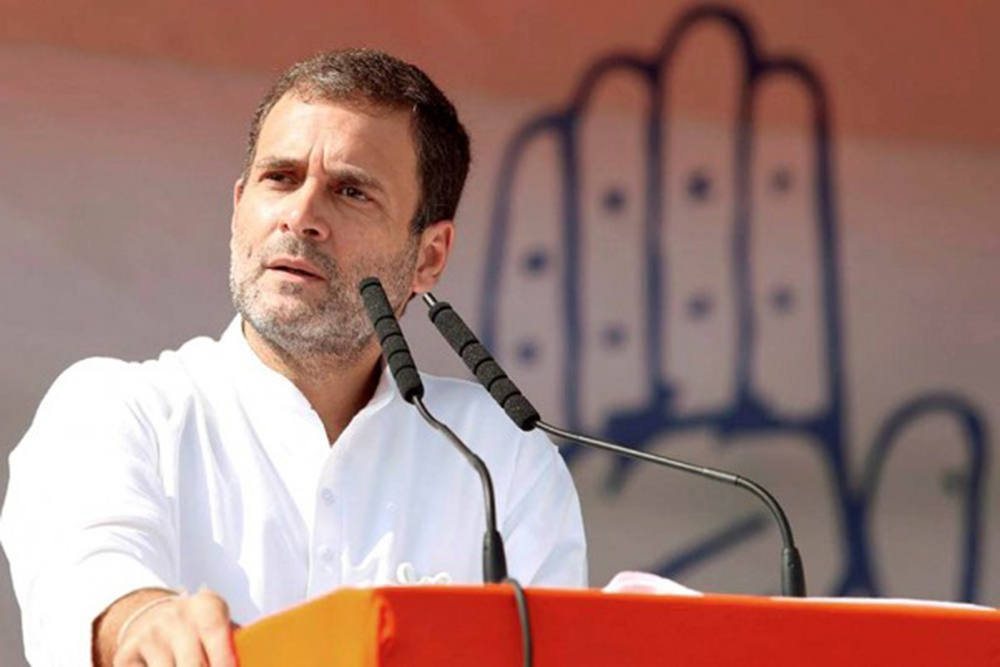Bengaluru: The Chief Electoral Officer (CEO) of Karnataka issued a letter to Rahul Gandhi, the Leader of Opposition (LoP) in Lok Sabha, mere hours after his sensational press conference alleging large-scale irregularities in the state’s electoral rolls. The CEO demanded that Gandhi substantiate his claims of electoral fraud with a signed declaration under oath, as per Rule 20(3)(b) of the Registration of Electors Rules, 1960.
During a high-profile news conference, Rahul Gandhi claimed that this year’s elections were “choreographed,” centering his argument on the Mahadevapura Assembly segment in Karnataka.
According to Gandhi, Congress’s internal research revealed that 100,250 votes were “stolen” in the Mahadevapura constituency through methods such as:
- Inclusion of duplicate and ineligible voters
- Fake or invalid addresses associated with voter registrations
- Multiple voters registered at single, implausible addresses (some with only one actual family at the site)
- Invalid photographs used for voter identification
- Abuse of Form 6, which nominates new voters
Gandhi alleged, “Our internal polling told us we would win 16 seats in Karnataka; we won nine. We then focused on seven unexpected losses and zeroed in on Mahadevapura. Despite Congress winning all Vidhan Sabhas elsewhere, this seat was swept by the BJP.
Here is the broad math: all data is from 2024, as reported by the Election Commission of India. Total votes polled in the Lok Sabha were 6.26 lakhs. The BJP won with 6,58,915, securing a margin of 32,707. But when we look at Mahadevapura, Congress polls 1,15,586, BJP polls 2,29,632.”
In response, the CEO’s letter remarked, “It is understood that during a Press Conference held today, you mentioned the inclusion of ineligible electors and exclusion of eligible electors in the Electoral Rolls. You are kindly requested to sign and return the enclosed Declaration/Oath under Rule 20(3)(b) of the Registration of Electors Rules, 1960, along with the name(s) of such elector(s) so that necessary proceedings can be initiated…”
This official step seeks to ensure due process, requiring that any allegation of impropriety carries legal accountability. By invoking the statutory rule, the CEO aims to begin a formal probe if Gandhi provides detailed, signed evidence.
Gandhi further vented concerns beyond Karnataka, pointing to a pattern in recent Indian elections:
- Anti-incumbency is not affecting the BJP, in contrast to global democratic norms
- Sharp differences between exit polls, opinion polls, and final results, particularly citing the Haryana and Madhya Pradesh elections
- Suspicion regarding multiple-phase polling and timing changes in states like UP, Haryana, and Karnataka
“There was a time in India with no EVMs; people voted on one day. Now, voting stretches for a month, and the dates keep shifting. This made us suspicious,” Gandhi explained.
The onus is now on Rahul Gandhi to furnish a sworn, signed list of specific electoral roll irregularities in Mahadevapura. If provided, and as required by law, the Election Commission can initiate proceedings that may include further investigation or corrections in the voter list.
This public confrontation has now become a litmus test for transparency in India’s electoral framework, pitting the machinery of election administration squarely against the leader of the opposition, under the watchful eyes of Indian democracy.






